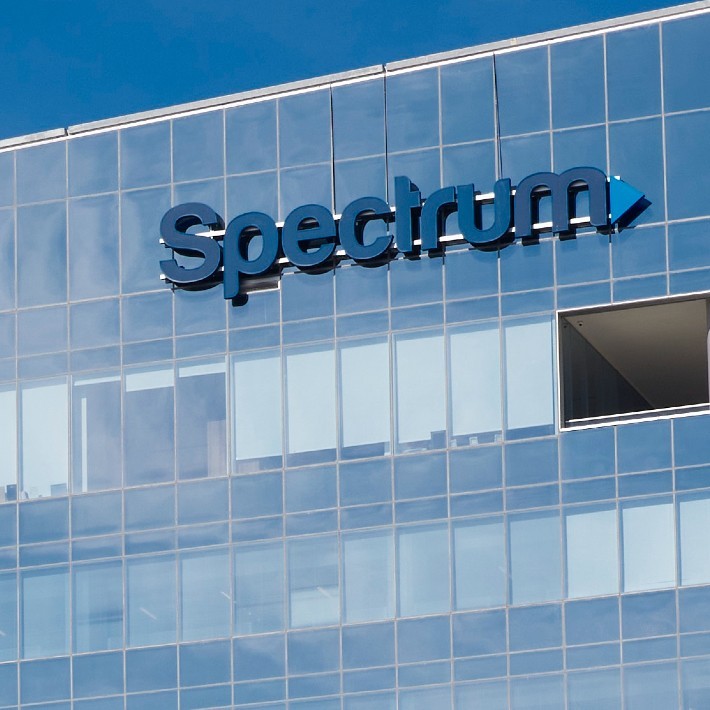
Samsung is asking for FCC permission to release a radio that can broadcast cellular signals in two spectrum bands, the C-band and the 3.5GHz CBRS band. But cable company Charter Communications has some reservations about that.
"Charter respectfully requests that the Commission defer acting on Samsung's petition until interested stakeholders have had a reasonable opportunity to review and comment on the results of Samsung's tests on whether and how its novel dual-band transmitter satisfies the CBRS out-of-band emissions (OOBE) and in-band emissions levels in each mode in which the Samsung base station can operate," the company told the FCC in a new filing.
Charter argued that it supports new wireless technologies in general, but that "the publicly available record in this proceeding is insufficient to demonstrate that Samsung's composite 3.7GHz/CBRS base station will not cause harmful interference in the CBRS band." The C-band includes transmissions in 3.7GHz spectrum.
Charter isn't specifically opposing Samsung's efforts at the FCC. Instead, the company requested more details about the operation of Samsung's proposed radios, including how they might affect other operations in the CBRS band. The company also asked the FCC to ensure that, if Samsung's radios do cause interference in the CBRS band, the agency would require the vendor to turn off the offending radio.
Figure 1:  (Source: Chris Willson/Alamy Stock Photo)
(Source: Chris Willson/Alamy Stock Photo)
Charter's position is different from Verizon's and Ericsson's. They filed comments with the FCC offering unfettered support of Samsung's petition.
"As a holder of both 3.7GHz service spectrum, which as of March 2023 we have built out for 5G to more than 200 million people, and the largest holder of CBRS Priority Access Licenses (PALs) spectrum, Verizon supports the Samsung multiband device," Verizon said in its filing.
Verizon argued that such a multiband device from Samsung would be easier to deploy, would take up less space than two radios, and would be more energy efficient.
In its filing, Ericsson offered similar support.
The bigger story
Charter's filing would appear to underscore the company's interest in building a wireless network in its own CBRS spectrum holdings – and preventing possible interference to that network. Roughly three years ago, Charter spent close to half a billion dollars on CBRS spectrum licenses covering much of its cable footprint. The company has since indicated its interest in building a 5G network on those spectrum holdings as a way to reduce its use of Verizon's 5G network.
As a mobile virtual network operator (MVNO), Charter's Spectrum Mobile service runs on Verizon's 5G network. However, Charter has been looking for ways to reduce its reliance on Verizon's network for its growing mobile business.
Fellow MVNO Comcast also wants to reduce reliance on Verizon. Already Charter and Comcast offload their mobile traffic onto Wi-Fi hotspots where available and hope to add a CBRS component to that offload strategy in the future.
Indeed, along those lines, Comcast late last year said it would use CBRS radios from Samsung for its own planned 5G network in its 600MHz and CBRS spectrum holdings. Comcast has not offered an opinion on Samsung's planned dual-band radios for transmissions in CBRS and C-band spectrum.
Meanwhile, Verizon's interest in Samsung's multiband radios is clear. The company spent almost $2 billion on CBRS spectrum licenses, and another $50 billion on C-band licenses. Verizon added Samsung as one of its 5G equipment suppliers in 2020 via a $6.6 billion deal with the vendor.
For its part, Ericsson recently received its own waiver from the FCC to sell a single 5G radio that can broadcast higher-power signals in both C-band and 3.45GHz spectrum. T-Mobile has made clear its interest in such radios.
Related posts:
— Mike Dano, Editorial Director, 5G & Mobile Strategies, Light Reading | @mikeddano
About the Author(s)
You May Also Like











